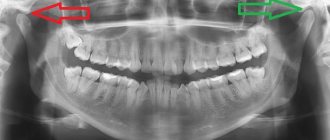Already in the first grade, parents and teachers are faced with such a problem as school neurosis. Neurological disorder in schoolchildren is reversible, therefore, the sooner treatment is started, the faster the child can be relieved of the unpleasant symptoms of the disease. Neuroses in children of primary school age serve as the first signal of possible serious mental problems in later life. Parents in such a situation are simply obliged to take measures to eliminate the disease, and not wait for everything to go away on its own.
Causes of school neurosis
The problem of psychological disorder in children attending school has been addressed not only by psychologists, but also by other pediatric doctors. They note that at present a negligible number of absolutely healthy children are born; many have already experienced one or another deviation in the development of the nervous system in their prenatal development. According to statistics, many children already come to school with neurosis acquired in the garden or at home. Experts conditionally divide primary school students into the following groups:
- The first group includes children who have severe developmental deviations. Their behavior is very different from their peers: they behave aggressively towards the teacher and classmates, are openly rude, and can walk around the class during class. As a rule, some students cannot boast of good academic performance and knowledge of the school curriculum. At the same time, the self-esteem of such children is too high.
- The second group of primary school age students includes the so-called average students. They study at 4 and 5, behave well, and in a word do not stand out from the crowd. But at one fine moment, parents and teachers notice a sharp change in the student’s mood. He becomes depressed, stops communicating with classmates, and his academic performance deteriorates sharply. The impetus for a psychological disorder most often comes from excessive workload at school, additional classes in sports clubs, music schools, and foreign language courses.
- The third group of schoolchildren outwardly seems quite prosperous. They have good grades and exemplary behavior, but if you take a closer look, the child is emotionally unstable. He is afraid to go to the blackboard, to answer in front of a large audience, he is afraid of punishment from his parents for a bad grade, even the look of a strict teacher can cause him to panic. Such children do not like to be seen; they are easily vulnerable, impressionable, and do not tolerate criticism from others well. Very often, such children simply refuse to attend school.
To avoid problems at school age, pediatric neurologists recommend that parents of children with abnormalities in the functioning of the nervous system be under the supervision of doctors almost from birth. This will prevent more serious problems in the future.
School neurosis can occur for the following reasons:
- Physiological reasons. These include severe maternal pregnancy, complicated childbirth, birth injuries, chronic diseases of the central nervous system, and weak immunity.
- Psychological reasons. There may be several of them: a difficult family situation, parental divorce, poor financial situation and living conditions, strict upbringing, the inability to establish emotional contact with peers, a discrepancy between the child’s capabilities and the pressures at school and outside of it.
Often, parents themselves provoke school neurosis in their child. Too severe punishment for a bad grade causes real horror in the student, he is simply afraid to go home. Teachers also influence the psychological state of their students. Sometimes a teacher simply does not realize how great his impact is on the student’s psyche. Psychologists have proven that information is absorbed much faster and easier if it is pronounced with a calm and measured intonation. The constant shouting and commanding tone of the teacher only worsens the microclimate in the classroom and only evokes negative emotions in students.
The problem of neuroses in primary school age
Neuroses often occur in children of primary school age. This is due to the mental characteristics of children: they are very vulnerable and emotional, and react sharply to changes in environment. If a child has not attended kindergarten from an early age and is not used to being in a group environment, at first it will be difficult for him to adapt to school and establish communication with peers.
Children who are overprotected by their parents lack the ability to make independent decisions. They are impressionable, do not tolerate any criticism well, are unable to participate in the collective life of the class and overcome interpersonal conflicts.
Symptoms
School neurosis refers to a psychological disorder in a child, accompanied by certain symptoms. Doctors divide the signs of the disease according to the following nature.
Physiological signs of school neurosis:
- Loss of appetite. Children with school anxiety may partially or completely refuse to eat, they are tormented by constant nausea, and sometimes vomiting. As a result, the student loses weight in a short time.
- Sleep disturbance. Schoolchildren often experience drowsiness during the day and, on the contrary, insomnia at night. Nightmares are often present in dreams at night.
- Dizziness, frequent headache.
- Spasmodic pain.
- Problems with the gastrointestinal tract, constipation or diarrhea.
- Increased fatigue, muscle weakness.
- The occurrence of cramps in the limbs.
In addition to physiological health problems, children suffering from a psychological disorder experience symptoms of a psychological nature:
- Sudden change of mood.
- Irritability and aggressive behavior.
- Increased vulnerability, vulnerability.
- Constantly depressed.
- The occurrence of hysterical attacks. A schoolchild can fall to the floor and beat with his arms and legs, often using his head.
The appearance of neurosis, especially in younger schoolchildren, can be seen by some signs:
- Doesn't respond to his first and last name the first time, although he hears perfectly well. All tasks have to be repeated twice.
- Absentminded, the child often forgets school supplies at home.
- Attracts the attention of others, tries to make jokes and jokes, does this on purpose.
- When answering at the blackboard, the timbre of the student’s voice changes, it becomes shrill or disappears altogether.
- Upon arriving home, the student cannot really talk about his day at school, immediately withdraws into himself and goes to another room.
- A few hours before classes, the child’s palms become sweaty and his heart rate increases. He cannot concentrate and drops objects on the floor.
If parents notice at least five of the listed signs in their child, they need to urgently take appropriate measures. If possible, you should contact a child psychologist who will help you understand the causes of school neurosis and eliminate them.
Signs of neurosis
Both children of primary school age and high school students are susceptible to this condition. While children are more likely to experience maladaptation, teenagers often experience difficulties with self-affirmation in a team, as well as exam stress.
Symptoms of school neurosis that are observed at home and at school:
- the student is not collected, often drops objects and fumbles under the desk;
- in class he is afraid to go to the blackboard;
- unable to establish emotional contact with peers;
- the child refuses to go to school;
- forgets various school supplies at home;
- a difficult task can cause tears and hysterics;
- secretive, hides diary and notebooks from parents;
- his hands tremble and his palms sweat;
- there are obsessive movements (biting lips, nails, pen, tugging at hair, rubbing hands, forehead);
- Tics, involuntary grimaces and twitches may occur;
- when doing homework, he lies on the sofa, walks or stands, and if he sits at the table, he is constantly distracted by extraneous activities;
- aggressive, takes out his anger on school supplies.
On the path to personality development, a child can benefit from any experience, even negative ones, but he must feel the support of his parents and feel self-confident.
You cannot let the situation get worse, as this can lead to the development of depression. You should discuss the current circumstances with the child, and if necessary, seek the help of a child psychologist.
Treatment and prevention of school neuroses
The main task of getting rid of the neurological disorder falls on the shoulders of the parents. This is quite a difficult job, which concerns not only the child, but also the parents themselves. Adults rarely think about their role in the psychological development of their child, but in vain. It is in the family that the prerequisites for the emergence of neuroses are formed, and external factors become simply the “last straw”. To help a student get rid of neurosis, parents should pay attention to the following points in their behavior:
- Having an emotional connection with the child.
- Do not concentrate only on your problems and worries, spend more time with your baby.
- Make certain sacrifices for the sake of children. This means not only material expenses, but also sacrifice of personal interests.
- Reconsider the model of upbringing; perhaps there is excessive authority and adherence to principles.
- Do not conflict with parents of your child’s peers.
- Pay attention to your own behavior; perhaps the parent is setting a bad example for their child.
Prevention of school neuroses consists of observing the following rules:
Set a daily routine for your child
This means going to bed at the same time, a clear distribution of work and rest time, and it becomes possible to normalize the functioning of the nervous system.
Change of activity
For example, a schoolchild spends a lot of time reading books or other low-active activities. Prevention of neurosis is to dilute the child’s free time with other leisure activities: walks in the fresh air, cycling or skating, and so on.
Relaxation
It is necessary to teach the child to relax. This can be done through swimming, breathing exercises, and communicating with animals. Experts note a special role in the treatment of school neuroses with the help of animals. Horseback riding and swimming in a pool with dolphins show positive dynamics in the treatment of many psychological disorders. Many scientific books have been written about the possibilities of such treatment.
Classification and symptoms
The domestic classification divides all school neuroses into three large groups: neurasthenia, neurasthenia and obsessive-compulsive neurosis. The world community additionally identifies depressive neurosis.
Neurasthenia is a special complex that combines chronic fatigue and increased excitability.
At first, the child simply reacts negatively to all sorts of questions, moral and physical stress. Gradually sound, light radiation, and smells begin to irritate. Subsequently, due to the depletion of the nervous system, autonomic disorders appear: increased sweating of the palms of the hands, increased heart rate, sleep disturbances up to insomnia, pressing or pulsating headaches, weakness and malaise. The student cannot concentrate either during class or when doing homework, he becomes whiny, touchy and capricious.
This condition usually ends favorably if it is diagnosed in time and the student is given the opportunity to fully rest and gain strength. If complications occur, additional specialist assistance and drug therapy are required.
Hysteria is a set of mental and nervous system disorders that affects a person’s speech and behavior. School neurosis is characterized by a hysterical uncontrolled seizure - chaotic body movements combined with screams. There are prolonged sobs, cramps of the arms and legs, tremors of the upper extremities, attacks of suffocation, increased blood pressure and increased heart rate. This state of affairs can be viewed from two perspectives. On the one hand, hysteria becomes a clear indicator of internal experiences and the serious health condition of a sick child. On the other hand, it has a demonstrative nature, that is, a person tries to attract attention to himself and fill the lack of required love and care.










